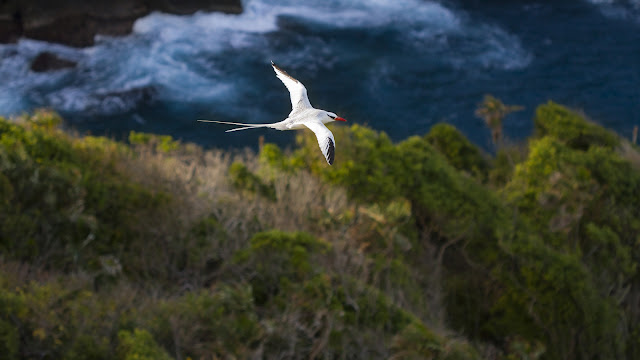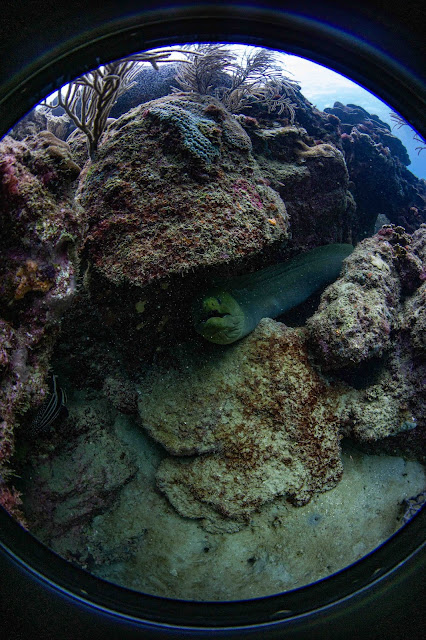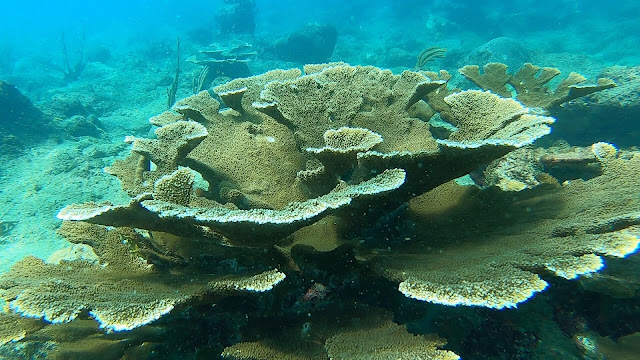Become an Environmental Steward for Tobago
Patricia
Turpin, representing the NGO Environment Tobago, spoke at the opening of
the inaugural Tobago
Environmental Partnership Conference held at the Mount Irvine Bay Hotel,
on May 13. She invited all Tobagonians
to become stewards of the environment.
What do you mean by stewardship?
Let us dig into the meaning of environmental sustainability
and stewardship. For today’s purpose, let us consider the concept:
Environmental sustainability means maintaining the ability
of natural systems such as forests, wetlands, lagoons, rivers and waterfalls,
coastal and marine habitats (our shores
and the sea around us) and their biodiversity
(the creatures which thrive in those habitats) to provide natural resources and the services
upon which we depend for life. You can see that this is a very complex and
interconnected proposition; definitely overwhelming for us, one species.
Accepting that sustainability – and specifically human sustainability
– is so dependent on and connected to the web of life, we must come to
understand that it is in our own interest to not act in ways that compromise
life-sustaining systems. We – whose very existence may be put at risk – have
the responsibility for maintaining environmental quality. We must choose to
become environmental stewards.
 |
| We should all have a voice in protecting “home,” the community where we live, the island and the seas we live on. Photo of Charlotteville courtesy Pat Ganase |
Is that what we mean by sustainability and
stewardship?
When we in Tobago talk about environmental sustainability,
we refer to it in an economic,
developmental and social context. We take the “humans first”
approach and are actually talking about more than survival; our “uses for” and
our “wants.” Our concept of sustainability has gone way beyond our “needs.”
This attitude inevitably leads to environmental “trade- offs,” within which Development
prospers and the natural systems suffer.
Most importantly, when envisioning our “wants” we must
understand that there is no such thing as “sustainable use” of non-renewable resources
in any of the systems, land or marine, mentioned. Everything we “use,” is a
loss. Even as we are still learning
about the real value of natural ecosystem resources, our developmental plans must take into account those laws and
policies already existing for ecosystem protection. We have to work collectively
to ensure that all can prosper without “trade- offs”. NGO’s and CBO’s that
traditionally act as the “watch dogs” and stewards of proper land use, must be
accepted as environmentally literate and responsible partners. We are not “anti-development” but we do want to
ensure that our development does not put other species at risk. We should all
become stewards of the places where we live.
How do we know what is sustainable? Who decides?
Promoting environmental sustainability today and into the
future, requires that we be circumspect and responsible. We must respect the
laws and policies governing our environment. Meaningful consultation between
communities, government agencies, developers and civil society in a holistic
and realistic manner will go a long way in alleviating problems and in conserving
the environment.
To help us along this road, the United Nations Development Program
put together a blueprint for development in 2015 called the 17 Sustainable
Development Goals that can help us protect the environment, while guiding its
use. Among these goals are basic ones like no poverty, zero hunger, quality
education, gender equality; but also sustainable cities and communities, climate
action, and maintaining life in the ocean and life on land. You can see the
full list here: https://www.un.org/sustainabledevelopment/sustainable-development-goals/
The THA and our Government - among most nations in the world - have
adopted these goals, and are working towards mainstreaming them into all
policies and plans. But basically, communities must inform and empower
themselves, and have a voice in decision-making.
How do we have a voice?
Get involved in the environmental CBO’s and NGO’s in
communities in Tobago; at the very least, pay attention to what is being
said. We all have a duty to become
stewards and advocate for positive environmental practices and ethics by
example in our work places and homes. We must on an ongoing basis educate
ourselves. We must teach, research, train, partner, develop innovative community
and outdoor school programs and lectures that will engender an environmentally
literate population and lead to a greater understanding of the issues
confronting us in order to help arrive at solutions to address them.
The process is slow but we have to cultivate positive mindsets
and habits about issues that affect our environments on land and in the sea. We
must not feel hopeless in the ability to bring about these changes. Government
agencies must also find ways to exhibit and actively promote these new policies
in the work place, and by effective governance.
What if we don’t do anything?
We cannot continue to live in the current mode. Mankind has
caused an alarming decline in our ecosystems and in the biodiversity of
species. We should be frightened. We have lived as though there is no tomorrow.
All is not yet lost. Tobago can be an example – we can do our part to stem the
tide; for instance, we can advocate to declare the island plastic and styrofoam
free. On an ongoing basis, we can clean our wetlands and beaches. We can make
choices in our daily lives to use recyclable or natural materials in our
homes, at fetes and parties, and in
public spaces and entertainment venues. We can plant trees to help to mitigate
the effects of a changing climate. We can make all of Tobago – not just the
Main Ridge or the reefs – a protected island.
We can all help ourselves and each other to make these
changes. We must each of us become a steward of where we live.


